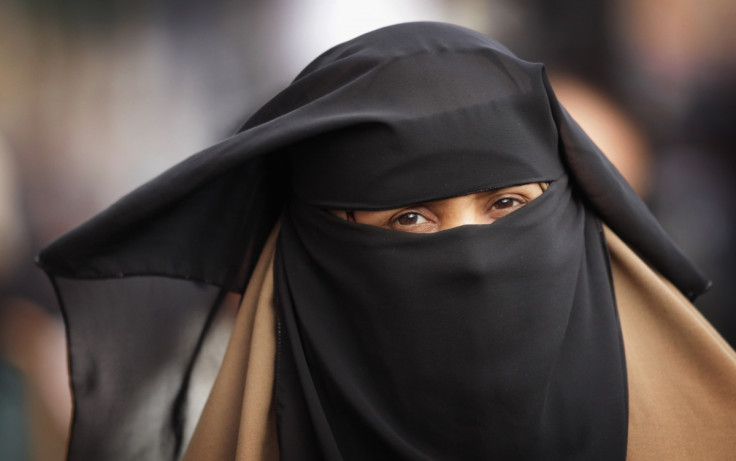Angela Merkel's CDU calls for ban on burqas in Germany

German Chancellor Angela Merkel's liberal-conservative Christian Democratic Union has called for a ban on burqas in public as the party believes Muslim garments for women that cover the entire body are at odds with German values. The demand comes at a time when the country is facing an influx of refugees, the highest in Europe, primarily from conflict-ridden Muslim countries.
"Anyone who wears them is demonstrating that they are not ready to integrate in our free and open society. Therefore, we reject the use of full-body coverings in public," reads an excerpt from an 18-page party resolution. The resolution will be debated by CDU delegates at a crucial congress starting 13 December, which is likely to test Merkel's authority amid calls by some members for a cap on the number of refugees entering Germany.
At present, wearing veils is not illegal in Germany but in 2003 the federal constitutional court ruled that state governments could impose restrictions on school teachers. As a result, half of Germany's 16 state governments banned teachers from wearing Islamic veils and headscarves. In March this year, however, the constitutional court struck down the ban as unconstitutional.
Employees in the municipal administration of many states are also not allowed to wear veils at work and there have been recent calls for this to be extended to public life.
Neighbouring France has been in the spotlight for its complete ban on the burqa. The French government's ban was upheld by the European Court of Human Rights in July when a French citizen moved the court against the ban. Wearing the burqa in public in France can now cost one a fine of up to €150 (£108; $164).
In the past, other European countries like Belgium, the Netherlands, Italy and Spain have also called for a ban especially on the full face-covering "niqab" and some have managed to implement it in parts. In 2011, the Belgian government banned the Islamic full-face veil and any clothing that obscured a person's identity in a public place.
In 2007, the Netherlands prohibited the full veil in schools and on public transport. Veils have also been banned in several towns in Italy such as Novara.
© Copyright IBTimes 2024. All rights reserved.





